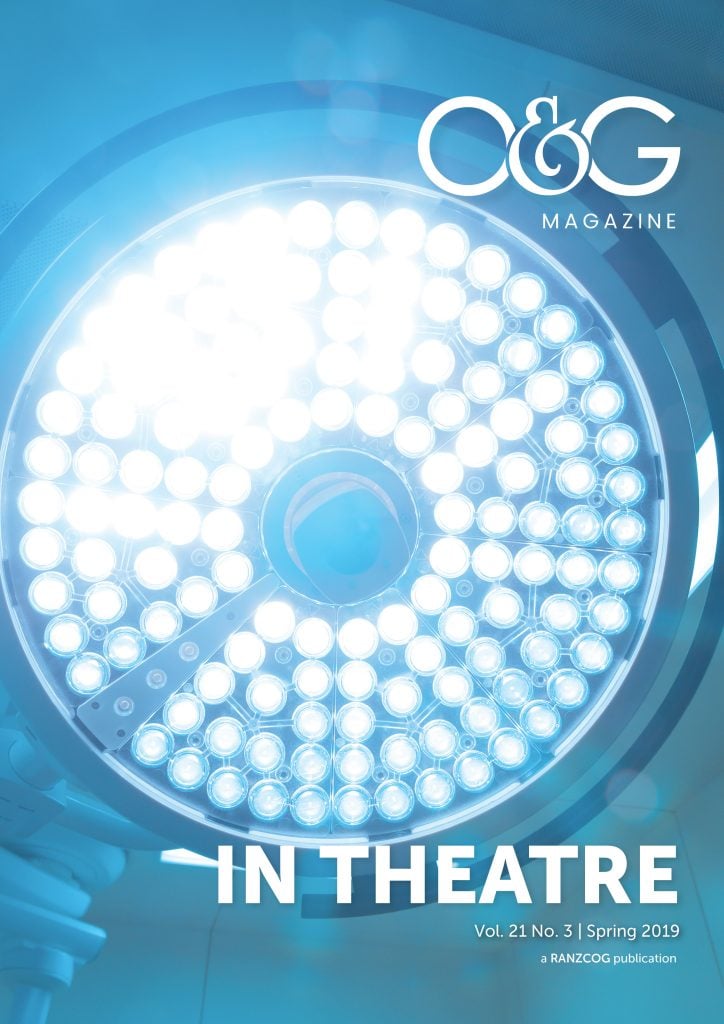We wish to respond, if we may, to the thoughtful observations of the respected Editor-in-Chief of ANZJOG, Prof Caroline de Costa, in O&G Magazine Vol 21 No 2, Winter 2019.
At the outset, we wish to acknowledge the efforts of trailblazers such as herself, Dr Christine Tippett and many other dedicated female Fellows, too numerous to mention individually, in achieving the gender equity that currently exists in our College, despite impassioned comments to the contrary in terms of an inequity in ‘positions of power’.
We have witnessed this extraordinary and welcome change in the past 40 years that we have been serving women and their babies, our families, our College and our communities in various capacities.
We just wonder whether Prof de Costa not receiving any considered letters to the editor regarding male gender imbalance is because of our current-day obsession with political correctness and the fear of censure that some males may have that if they ‘cross the line’ in their attempt to offer some commentary on this topic, and even more so in suggesting a solution such as ‘positive discrimination’, which is freely put forward as a compulsory initiative by those wishing to promote female gender equality.
Predictions of a male gender dearth within our specialty have been projected for a considerable period of time with respected College representatives, Dr Louise Farrell and former President, Dr Rupert Sherwood, providing insightful comments into this eventual outcome in MJA in 2012.1
Has this prediction now been replaced by a perception that there is an active barrier to males entering obstetrics and gynaecology?
The reasons for this turnaround are multiple and complex and beyond detailed discussion in a Letter to the Editor. We all have our own conceptions and misconceptions as to why this is so and whether it is merit based and similarly with our view of the likely implications of equality in numbers but not necessarily equality in the fulfillment of all duties expected of a Fellow of the College engaged in active practice?
We could put forward the thought that male trainees in our specialty are rapidly becoming a minority group within the College and, as with other minority groups within the community at large, that they should have the right not to feel constrained to comment.
However, in times gone by, males, particularly our Fellows, have risen to the occasion in defending the rights of women to receive expert, empathetic and non-discriminatory care and similarly in encouraging and training women wishing to enter the specialty of O&G.
Male trainees and Fellows, we believe, now await similar efforts from their female and alternative gender colleagues to extoll the virtues and advantages of having an equal number of males with whom to work for the betterment of women’s health in a similar impassioned manner.
Where is their champion?
Of course, the politically incorrect answer is ‘to grow up and be a man’ just as women were forced to endure, or have we, as a society and as a College, matured sufficiently that this attitude is now an anachronism and we can address the impending gender imbalance by logical and reasoned debate with mutual respect?
References
- N Mackee. A new generation. Med J Aust. 2012;197(5). Available from: www.mja.com.au/journal/2012/197/5/new-generation.






Leave a Reply